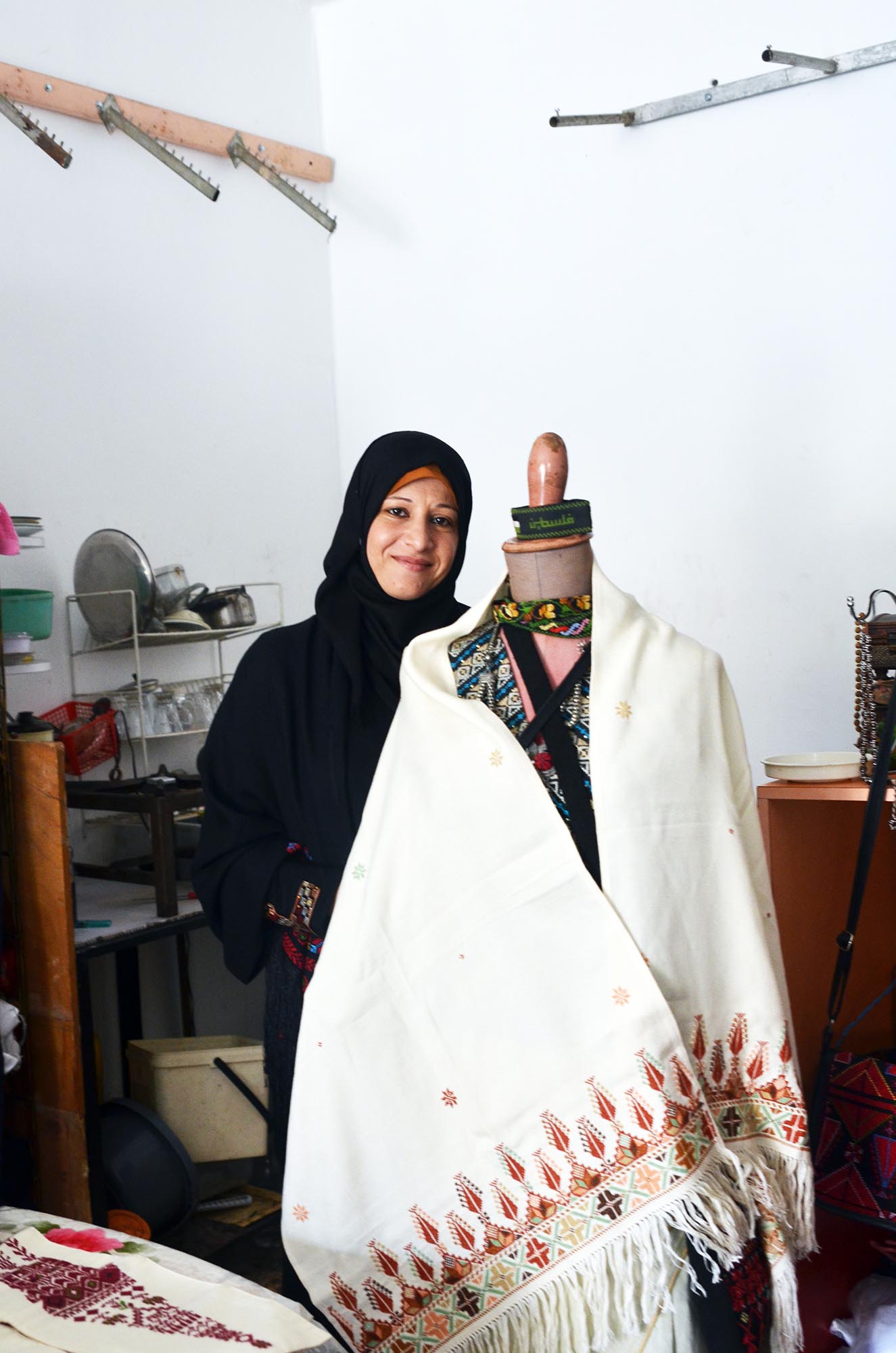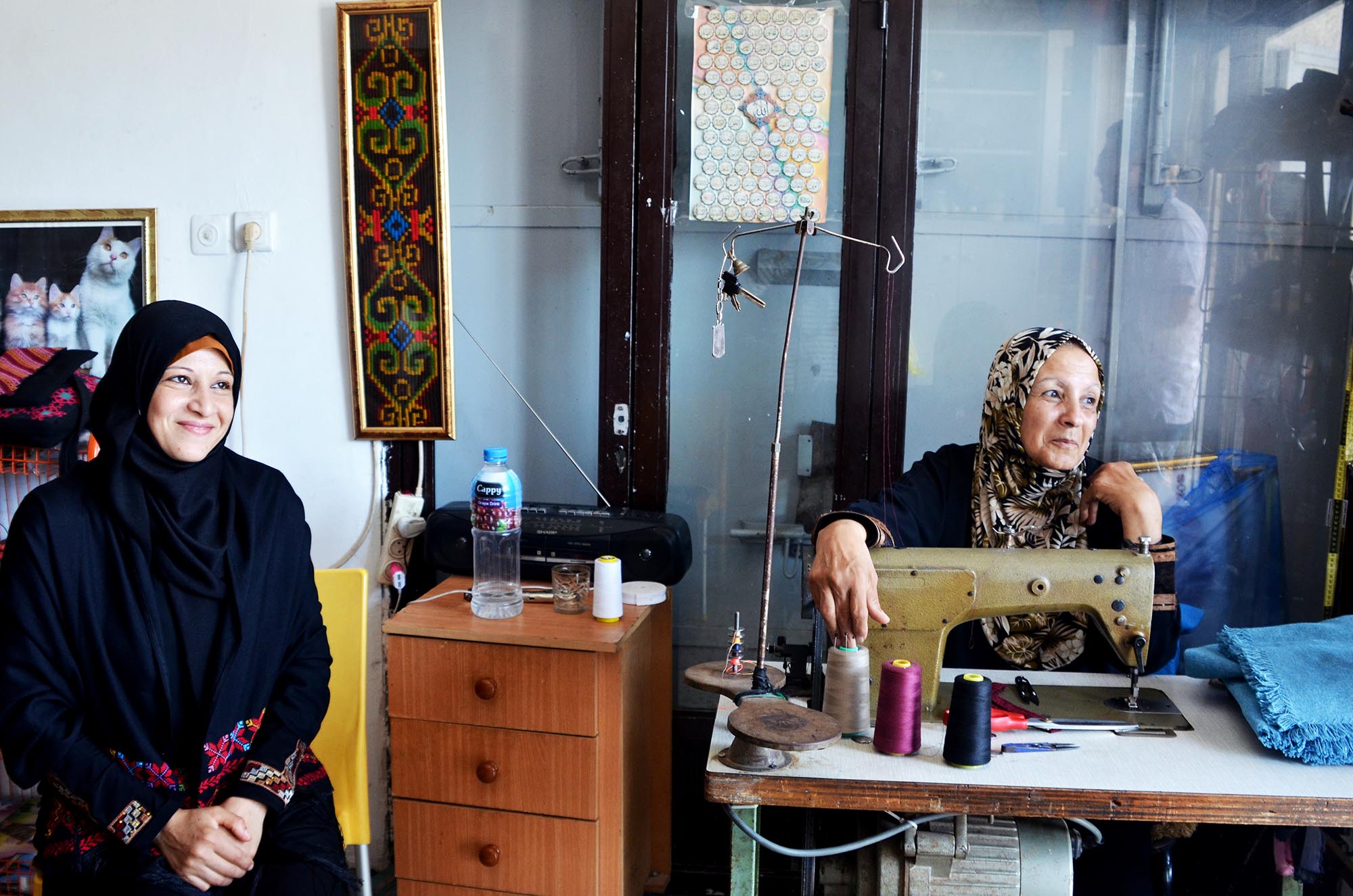COMMUNITY
Empowering Gaza Women Through Small Loans
Jul, 2018
The idea was to provide small loans up to $3,000 as seed money for women entrepreneurs. The results have been astonishing. Aida says the loan she got in 2010 changed her life.
When Anera created the Gaza Women’s Loan Fund in 1995, the aim was to help low-income women launch small businesses to help sustain their families. Gaza’s unemployment rate was high, with many husbands out of work. It was up to the women of the community to help their families survive.
The idea was to provide small loans up to $3,000 as seed money for women entrepreneurs. The results have been astonishing.
Aida says the loan she got in 2010 changed her life. She remembers visiting her mother-in-law once and hearing other women talking about the loans they had received through the program. Aida and her mother share a passion for knitting, sewing and creating traditional Palestinian embroidery. “I thought,” she said, “‘Why not create our own business, since we have good skills?’”
Aida’s embroidery not only brings in welcome income for her family. “My embroidery also preserves our heritage, our identity and our traditions. Every stitch has a story to tell,” she explains with pride.
She began her business in her tiny home in Shejaiya. When she had enough inventory, she started marketing the items. “People loved my work.” A year later her husband encouraged her to open a store and her business took off. “I usually embroider colorful pieces of fabric and my mother tailors them into nice purses, scarves, tablecloths and runners.”
Fatima, Aida's mother, is an integral part of the business and relies on her 40-year-old machine for her work. “That’s how long I have been sewing,” she laughs. Aida’s 13-year-old daughter learned embroidery in an elective class at school and now helps at the shop during her summer break.
Both Aida and Fatima are proud of their embroidery and the success of Aida's business.
"If a day passes without embroidery, it feels like something is missing from my life," Aida says passionately.
Aida’s mother acknowledges the challenges of running a business in Gaza’s depressed economy. “Fabric and thread are expensive,” Fatima explains, “And I have fixed this sewing machine so many times to keep it running as long as possible.” When business is slow, they don’t have enough money to buy supplies they need to finish items for the shop. “And, when we get orders from outside Gaza, we have a hard time finding ways to send the finished products to them.” She pointed to a tablecloth that has been packed in a box for months waiting for a way to ship it to a customer in Dubai. She is waiting for someone to take it out of Gaza, since there is no mail service.
Fatima admits it is hard work. “My eyes and hands got tired, but we’ll continue to find ways to improve. We will be ok as long as we are together,” she says.
About the Gaza Women's Loan Fund
Anera established the Gaza Women’s Loan Fund in 1995 with the Culture and Free Thought Association. The program provides working capital to low income women in order to reduce poverty, create employment, and generate income. For more than 20 years, it has provided small loans to support micro-businesses, from home-based food processing and clothing businesses to kiosks selling cloth, food and animal husbandry supplies. The loan repayment rate is more than 95%. Aida has taken out and repaid three loans from the program.
Since 1995, Anera has supported 5,676 women across Gaza through loans totaling $7,200,000 million.
As the humanitarian and economic crisis in Gaza deepens, the number of women now responsible for family incomes increases and so does the need to support their efforts.





